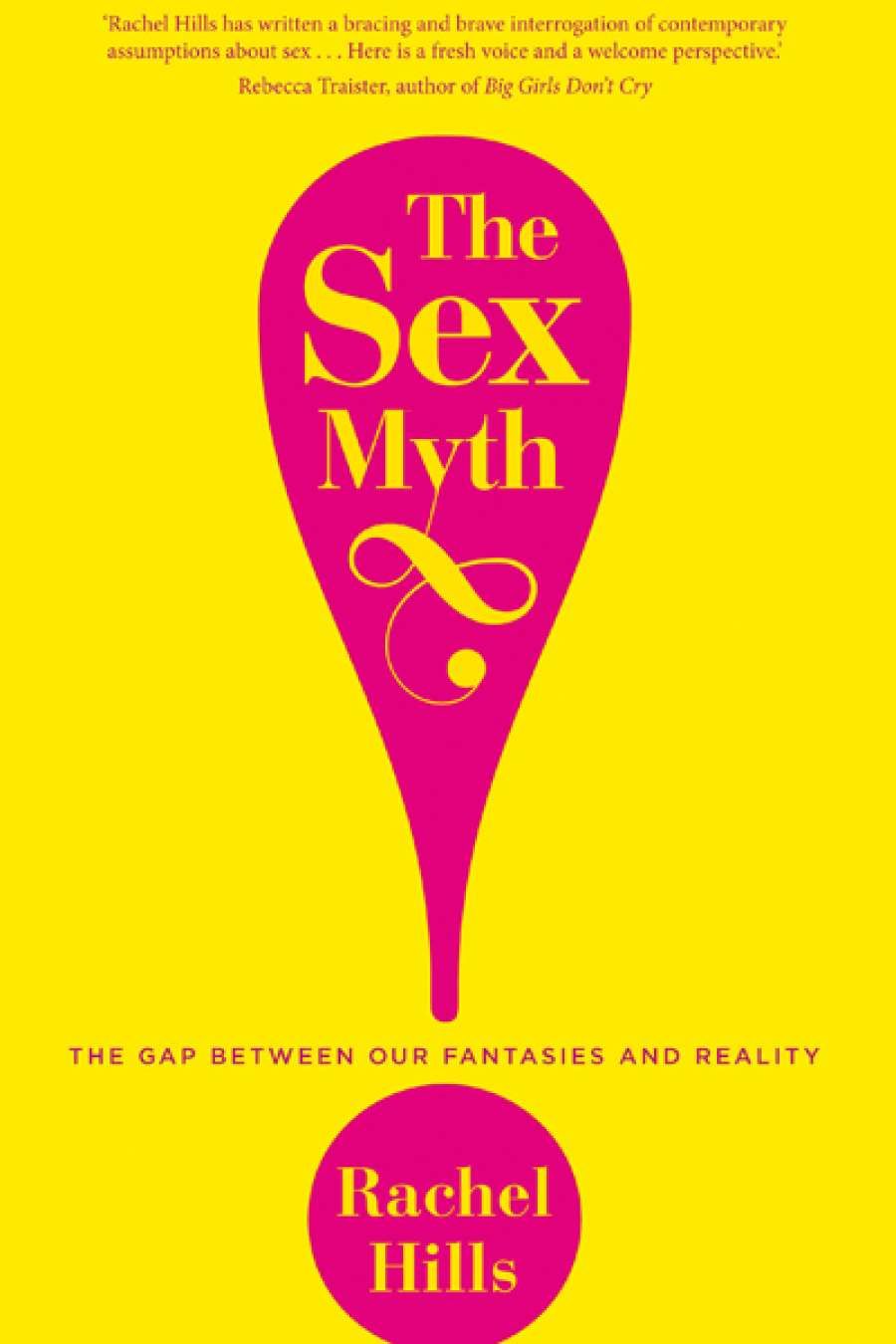
- Free Article: No
- Contents Category: Gender
- Custom Article Title: Dion Kagan reviews 'The Sex Myth' by Rachel Hills
- Review Article: Yes
- Online Only: No
- Book 1 Title: The Sex Myth
- Book 1 Subtitle: The gap between our fantasies and reality
- Book 1 Biblio: Viking, $32.99 pb, 267 pp, 9780670076925
Rather than being liberated, in post-revolution sexual culture we are sexually indentured. Among men, for example, masculinity and homo-social bonding is secured through the competitive acquisition of bedpost notches. The stereotype of the insatiable male libido breeds feelings of inadequacy and intimidation. Although the excesses of 'bro culture' only represents a small proportion of men, virility is still regarded as a verification of masculinity. Hills echoes insights from masculinity studies about the sexual boasting rituals central to fraternal bonding, and how these tend to instrumentalise both sex and women's bodies. She also finds that men are more vulnerable to the sex myth because they are neglected in cultural conversation about sex.
'For women, a "Sex and the City-style" erotic habitus has become virtually compulsory'
For women, a 'Sex and the City-style' erotic habitus has become virtually compulsory. But old patterns remain: dynamics of male initiator and female gatekeeper; boy talk as a ritual of girlhood that reinforces heterosexual romance norms from an early age; the over-valuation of virginity and the timely losing of it. Hills's interviewees reflect on what has been called the post-feminist 'double-bind', which Hills snazzily rebrands the 'Madonna/Gaga Complex'. Ever more novel forms of sexual anxiety and slut-shaming indicate that sex is still central to women's social value. On the other hand, hook-up culture may be an engine of economic progress because it enables women to focus on careers over the distraction of relationships. Post-liberation, women's sexuality is nothing if not riddled with paradoxes.
'The most innovative chapters of The Sex Myth identify how a performance imperative has become central to individual sexual success'
The most innovative chapters of The Sex Myth identify how a performance imperative has become central to individual sexual success. Variety, regularity, and high quantities of sex are prized. 'Hotness and horniness' indicate being in control of our romantic fortunes, and the supposed coolness, confidence, and spontaneity of hook-up culture speaks to this 'deeper' sexual agency. A 'low-level kink' is a semi-mandatory sign of modernness, and yet all fetishes are interchangeable: the frisson of transgression is prized over and above the act itself. A ubiquitous media culture of glossy, 'high modality' imagery tells us that sex appeal is an index of our vitality, selling us goods and lifestyle practices which exploit an endless market in sexual aspirations.
The argument that 'sexual liberation' has actually come to regulate us has long circulated in feminist and queer critical literatures. Hills paraphrases Michel Foucault and a number of others in her argument that our culture's over-investment in sex emerged from the modern preoccupation with sexuality as a profoundly revelatory, embodied human truth. In this sense, The Sex Myth is a cloak-and-dagger application of feminist and queer ideas to our contemporary milieu. The strength of its central 'sex myth' hypothesis could not have be made without the insights of these ideas; nonetheless, The Sex Myth identifies new and particular details of this culture, particularly through the fruitful meshing of its interviewee's stories with pop discourses. Without falling into a kind of sex negativity, Hills makes the persuasive case that valuing ourselves through the prism of our sex lives was neither the point of, nor should be the continuing objective of, sexual liberation.


Comments powered by CComment